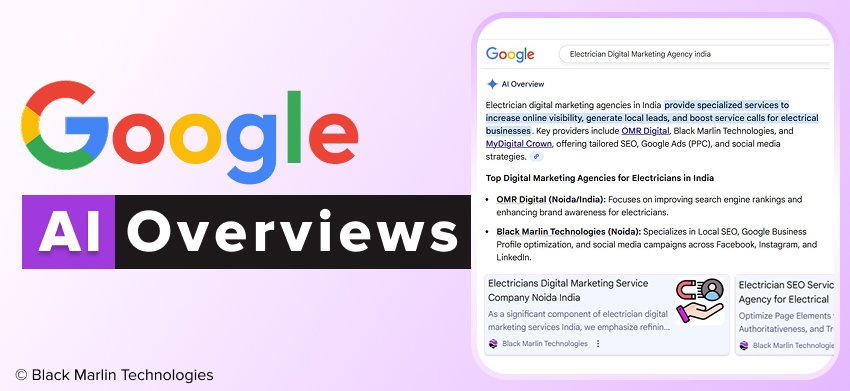If you’re running an HVAC business in 2025, you’ve probably noticed one thing: competition is heating up faster than ever. More local companies are popping up, homeowners are searching online before they pick up the phone, and old-school word-of-mouth just isn’t enough anymore.
That’s exactly why HVAC digital marketing is no longer optional; it’s the backbone of how you get found, build trust, and convert curious homeowners into paying customers. Whether you’re a small local contractor or an established HVAC company, having the right HVAC marketing strategies in place is what separates you from your competitors.

In this guide, we’ll break down the Top 10 HVAC Digital Marketing Strategies to Get More Leads in 2025. From sharpening your local SEO to creating content that attracts clicks, these proven tips will help you stay ahead of the curve and your competition. Ready to grow your leads this year? Let’s dive in!
- 1 – Optimize Your HVAC Website for Local SEO
- 2 – Leverage Pay-Per-Click (PPC) Advertising
- 3 – Invest in Content Marketing & Blogging
- 4 – Use Social Media to Build Local Trust
- 5 – Run Targeted Email Marketing Campaigns
- 6 – Get More Positive Reviews & Manage Your Reputation
- 7 – Use Video Marketing to Stand Out
- 8 – Improve Your HVAC Website Design
- 9 – Optimize Your On-Page SEO
- 10 – Strengthen Your Off-Page SEO
- Bonus Tips for HVAC Marketing in 2025
- Final Thoughts
1 – Optimize Your HVAC Website for Local SEO
When it comes to HVAC digital marketing, Local SEO is one of the most powerful tools you have. Why? Because when a homeowner’s AC stops working in the middle of summer, they’re not scrolling through page ten of Google, they’re searching “AC repair near me” and clicking the first trusted company they find.
Local SEO for HVAC businesses makes sure your company shows up exactly when and where people need you. By optimizing your website and online profiles, you help Google understand where you work and what services you offer so your business appears in local search results, Google Maps, and even voice searches.
Here’s how to get started:
- Claim and optimize your Google Business Profile, add complete details, upload high-quality photos, and keep your hours updated.
- Build local citations and make sure your business name, address, and phone number are exactly the same on directories like Yelp, Angi, and your local chamber of commerce.
- Create location pages if you serve more than one city or neighborhood, build a separate page for each area so you can target local keywords more effectively.
Local SEO is not a set-it-and-forget-it task. But once you get it right, you’ll rank higher for searches like “furnace repair in your city, attract more local leads, and stay ahead of your competition.
2 – Leverage Pay-Per-Click (PPC) Advertising
When you need leads fast, PPC for HVAC companies is one of the most effective ways to get them. While SEO takes time to build, Pay-Per-Click ads can put your HVAC business at the top of Google search results overnight exactly where homeowners are looking when they have an urgent repair or need a quote.
The biggest advantage of PPC for HVAC lead generation is control. You decide how much to spend, which services to promote, and which areas to target. With Google Ads, you can place text ads right at the top of search results for keywords like “emergency AC repair” or furnace installation near me.
Another great option is Google Local Services Ads (LSAs) these show up above standard ads with a Google Guaranteed badge. LSAs help build instant trust and are perfect for local contractors because you only pay for actual leads, like phone calls or booking requests, not just clicks.
To get the best results, focus your ads on high-intent keywords, these are phrases people search when they’re ready to hire, not just browsing. Examples include “same day HVAC repair,” “AC tune-up specials,” or HVAC company near me.
On average, HVAC businesses see a solid return with PPC. Industry data shows companies can get $2 to $3 in revenue for every $1 spent on ads and sometimes more during peak seasons.
If you want more leads without waiting months for SEO to kick in, a well-planned PPC campaign can deliver results fast and help you fill your service calendar all year long.
3 – Invest in Content Marketing & Blogging
If you want your HVAC business to show up when customers search online, you can’t just have a website you need fresh, helpful content that brings people in. That’s where a smart content marketing strategy can set an HVAC company apart. Quality content is what drives organic traffic, builds trust, and turns visitors into leads.
Why does this work? Because homeowners have questions all year long: How often should I change my air filter? Why is my furnace making that noise? Should I get my AC serviced before summer? When you answer these questions on your website, Google sees you as an expert and rewards you with higher rankings.
So, what should you write about? Keep it practical and local. Some good ideas include:
- Step-by-step how-to guides for simple home maintenance
- Seasonal tips, like getting your HVAC system ready for summer or winter
- Answers to common FAQs about repairs, replacements, or costs
A smart approach is to plan a monthly blog calendar for your HVAC company. For example, January could focus on heating efficiency tips, while May covers AC tune-ups before the heat hits.
When writing, use your HVAC SEO keywords naturally, don’t just stuff them everywhere. Include phrases like “HVAC maintenance tips” or “air conditioner repair in [your city]” in headings and body text where they fit. Google prefers content that’s useful and easy to read — so do your customers.
Good content works 24/7. One blog post can bring in clicks and calls for years. When your content is genuinely useful, locally focused, and relevant to what people are searching for, you’ll rank better and attract better-quality leads.
4 – Use Social Media to Build Local Trust
Many HVAC business owners overlook social media, but it’s one of the easiest ways to build trust with your local community and stay top-of-mind when someone needs your services. The good news? You don’t need to be everywhere, you just need to show up where your customers already spend time.
For HVAC companies, Facebook, Instagram, and Next-door work best. Facebook is perfect for posting updates, sharing helpful tips, and running ads targeted to homeowners in your area. Instagram is great for visual content people love to see before-and-after photos of installations or clean-ups. Next-door connects you directly with local homeowners looking for trusted contractors in their neighborhood.
Not sure what to post? Keep it real and relevant. Some ideas include:
- Sharing customer testimonials and reviews, nothing builds trust like seeing real feedback.
- Share before-and-after photos of your projects to highlight the quality and results you deliver.
- Highlighting your team members, community sponsorships, or local events to show you’re a part of the neighborhood.
If you’re ready to reach even more people, run paid social ads. The key is geo-targeting, show your ads only to people in your city or service area so you don’t waste money. For example, you can run a seasonal promotion for AC tune-ups just before summer starts, targeting homeowners within a 10-20 mile radius.
When done right, social media marketing for HVAC businesses keeps you visible, builds trust, and reminds people to call when they need help fast.
5 – Run Targeted Email Marketing Campaigns
When done right, email marketing can be one of the most cost-effective ways to stay connected with customers and keep your HVAC business busy all year long. Many HVAC companies overlook it, but a simple email can remind someone it’s time for a tune-up or let them know about a seasonal special which means more repeat business and steady leads.
Start by sending helpful, timely emails. For example, send maintenance reminders at the start of summer or winter to encourage customers to schedule AC or furnace check-ups. Promote seasonal offers, like discounts on new system installations or emergency repair services before extreme weather hits.
To make your emails even more effective, organize your contact list into segments. Keep separate lists for residential and commercial customers, so you can send each group information that’s actually relevant to them. Homeowners might want home comfort tips or duct cleaning reminders, while commercial clients might appreciate energy-saving updates or equipment upgrade options.
Wondering if email is worth it? It is the average open rate for HVAC industry newsletters is around 20% to 25%, which is solid for a local service business. With the right message and timing, your emails can turn past customers into repeat clients and even earn you referrals.
Keep it simple, be consistent, and always include a clear call to action, like “Book your maintenance today” or “Schedule your free estimate.” Over time, a good email marketing strategy can bring in reliable leads and keep your business top-of-mind, even when customers aren’t searching online.
6 – Get More Positive Reviews & Manage Your Reputation
Online reviews can make or break an HVAC business these days. Why? Because reviews don’t just convince people to call you they also help you rank higher in local search results. Google cares about trust, so more good reviews mean better visibility when someone searches for best HVAC company near me.
Getting more positive reviews doesn’t have to be complicated. The easiest way is to automate your review requests. After finishing a job, send a quick follow-up text or email asking the customer to leave a review on Google, Facebook, or another trusted site. Most happy customers won’t think to do it on their own, but if you make it simple, many will say yes.
It’s just as important to know how to handle the occasional negative review. It happens to everyone. When you get a bad review, respond politely and quickly. Thank the customer for their feedback, apologize if needed, and offer to fix the issue if possible. A calm, professional reply shows future customers you care about good service and sometimes, the original reviewer might even update their review to a higher rating.
Over time, a steady stream of positive reviews will boost your credibility, help your business stand out from the competition, and turn online searches into real phone calls.
7 – Use Video Marketing to Stand Out
If you really want to set your HVAC business apart from the competition, video marketing is a smart move. Studies show that videos get far more engagement than static posts. People are much more likely to watch a quick clip than read a block of text. For local service businesses like HVAC, video builds trust and shows homeowners who they’ll be inviting into their homes.
Not sure what to film? Keep it simple and helpful. Create quick, helpful videos that show homeowners simple tasks such as replacing an air filter or spotting early problems before they need a repair. Create a quick team introduction video so people can see the real people behind your company. This helps build connection and trust. Or take your audience behind the scenes with short clips of an installation or service call with the customer’s permission, of course.
Once you have a few videos, make them work for you. Upload them to YouTube which also helps your SEO, embed them on your website’s service pages and blog posts, and share them across your social media accounts.
Video marketing for HVAC businesses doesn’t need to be fancy or expensive, just real, helpful, and local. The more comfortable people feel with your company before they pick up the phone, the more likely they are to choose you over the competition.
8 – Improve Your HVAC Website Design
No matter how good your HVAC digital marketing is, if your website is outdated or frustrating to use, you’ll lose leads fast. A well-designed website doesn’t just look good, it should help visitors find what they need quickly and make it easy to book your services.
Start by making sure your site is mobile-friendly. Most homeowners look for HVAC help on their mobile phones, especially when there’s an urgent problem. If your site doesn’t load properly on a small screen, they’ll hit the back button and call a competitor instead.
Fast load times are just as important. Even a small delay in your page’s load time can cause you to lose valuable customers. Compress images, fix broken pages, and choose a good hosting plan to keep your site quick and smooth.
Next, guide visitors to take action. Add clear calls to action (CTAs) like Book Now, Schedule Your Free Estimate, or Call Us Today. Make sure these stand out on every page, so customers don’t have to hunt for your contact details.
Consider adding an online booking system so customers can choose a time that works for them with no phone tag required. Many HVAC websites now include a live chat feature too. This lets visitors ask questions or book an appointment right away, even outside regular business hours.
When your HVAC website is clean, easy to navigate, and built to convert, you’ll turn more clicks into calls and more calls into paying customers.
9 – Optimize Your On-Page SEO
If you want your website to rank well on Google and bring in more HVAC leads, strong on-page SEO optimization is a must. Good on-page SEO tells search engines exactly what your pages are about and makes it easier for customers to find you when they search for services in your area.
Start with smart keyword placement. Include your main keywords in your page titles, headings, meta descriptions, and weave them naturally into your content. For example, if you want to rank for HVAC repair in your city, include that phrase in your H1 tag and at least once or twice in the body copy. Don’t forget to add keywords to your image alt text too this helps Google understand your visuals and boosts your chances of appearing in image search results.
Another simple but powerful step is internal linking. Link related pages and blog posts to each other. For instance, connect your “AC Installation” page to your HVAC Maintenance Tips blog. This helps visitors find more useful information and keeps them on your site longer which Google loves.
Finally, use schema markup for local businesses. Schema is a bit of behind-the-scenes code that helps search engines display extra info about your business, like your address, phone number, service areas, and customer reviews. Local business schema can even improve your chances of showing up in the Map Pack at the top of Google search results.
When you dial in your on-page SEO, you’re making it clear to Google and your customers that your site is helpful, trustworthy, and ready to answer exactly what they’re searching for.
10 – Strengthen Your Off-Page SEO
If you want to climb higher in Google’s rankings, strong off-page SEO optimization is just as important as what’s on your site. Off-page SEO focuses on building trust and authority for your HVAC business across the internet and backlinks play a big part in that.
One of the easiest places to start is by getting backlinks from local directories and trusted industry sites. Make sure your business is listed on sites like Yelp, Angi, Better Business Bureau, and any local contractor directories in your city. Consistent listings help boost your local search presence and can send referral traffic directly to your website.
Another smart move is guest posting on reputable home improvement blogs or local news websites. Many homeowners read these sites for advice and recommendations. Writing a helpful article like “5 Ways to Save on Heating Costs This Winter” with a link back to your website can drive traffic and build credibility at the same time.
Don’t overlook the power of local mentions either. Getting your HVAC business featured in local news stories, sponsoring community events, or partnering with other trusted local businesses can help you earn valuable backlinks and show Google that you’re an active, reputable part of your community.
A few extra link-building tips: Always aim for quality over quantity. One high-quality link from a reputable local news source is worth far more than dozens of weak links from unrelated sites. And make sure any sites linking to you are relevant to your industry or your local area.
The more trusted websites that link back to your business, the more Google sees you as an authority which means better rankings, more traffic, and more calls from homeowners who need your services.
Bonus Tips for HVAC Marketing in 2025
Once you’ve got your main HVAC marketing strategies in place, there are a few extra steps you can take to get even better results and save valuable time.
First, don’t be afraid to embrace AI tools. Many HVAC businesses now use simple AI-powered chatbots on their websites to answer basic questions, book appointments, or collect contact details even when you’re closed. Automated scheduling tools can also help cut down on phone calls and missed bookings, making it easier for customers to lock in an appointment at any hour.
Second, make sure you’re tracking what’s working and what’s not. Use Google Analytics 4 to see how people find your website, which pages they visit most, and which marketing channels bring in the best leads. This data helps you make smarter decisions and get the most from your budget.
Finally, if you’re too busy running the business to manage all this yourself, consider hiring an HVAC digital marketing agency. A good agency knows the industry, stays on top of trends, and can handle everything from SEO and ads to content and email so you can stay focused on what you do best.
A few smart tools, clear tracking, and the right help can make all the difference in hitting your growth goals this year.
Final Thoughts
Growing an HVAC business in 2025 takes more than good service. You need a solid plan to reach the right customers online, build trust, and turn clicks into booked jobs. The good news? You don’t have to do everything at once.
Start with a few strategies that make sense for your business. Maybe you’ll focus on local SEO and PPC ads to get more calls fast, or build out your content marketing and email campaigns to keep your schedule full all year.
Whether you pick two, three, or all seven, each step helps you stand out and generate more HVAC leads in a competitive market.
If you’re ready to grow but don’t want to handle it all alone, we’re here to help. Contact us today to learn how we can build a custom HVAC digital marketing plan for your business or schedule a free strategy session to see where you stand and what to do next.
FAQs
Q1: How much should an HVAC company spend on digital marketing?
There’s no one-size-fits-all answer, but many HVAC businesses invest around 5% to 10% of their annual revenue into marketing. If you want to grow aggressively or compete in a busy market, a larger budget for things like PPC ads, SEO, and social media can help you get there faster.
Q2: What is the best HVAC marketing channel?
There isn’t just one, the best results usually come from combining channels. For most HVAC companies, local SEO, Google Ads, and customer reviews deliver the fastest, highest-quality leads. Add content marketing, social media, and email campaigns to keep your calendar full year-round.
Q3: How long does it take to see results from HVAC SEO?
SEO is a long-term investment. Many HVAC companies start seeing better rankings and more organic leads within 3 to 6 months, but it depends on your market and competition. The sooner you start, the sooner you build steady traffic that works for you 24/7.
Q4: What’s the difference between On-Page and Off-Page SEO for HVAC?
On-page SEO is everything you control on your website like using the right keywords in your headings and page titles, adding internal links, writing good content, and making sure your site loads fast. Off-page SEO is what happens outside your site, mostly earning backlinks from trusted local directories, industry sites, or local news. Both are important if you want your HVAC company to rank well in local search results.
Q5: Can small HVAC businesses compete with big brands online?
Absolutely. Bigger brands may have bigger budgets, but local HVAC businesses often win because they’re more trusted in their own community. With strong local SEO, good reviews, helpful content, and a smart ad strategy, small and mid-sized HVAC companies can show up at the top of local search results right where homeowners are looking.
Q6: Should I handle my HVAC marketing myself or hire an agency?
If you have the time and know-how, you can manage parts of your marketing in-house like posting on social media or sending emails. But things like SEO, PPC ads, and advanced tracking can get complicated fast. Many HVAC owners hire a trusted HVAC digital marketing agency to handle strategy, ads, and results, so they can focus on running the business. A good agency helps you get better results without wasting money.
 +1-(646) 362-1414
+1-(646) 362-1414 +91 8826683820
+91 8826683820







